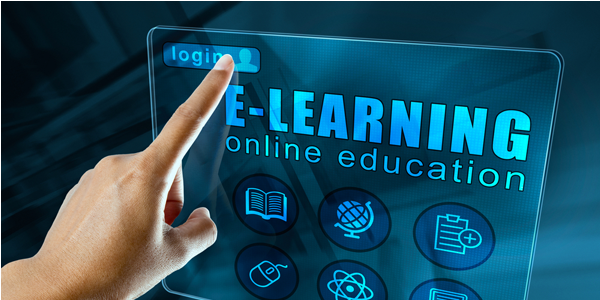- Home
- The Transformative Role of Technology in Education and Online Learning
The Transformative Role of Technology in Education and Online Learning
Many facets of our lives have been revolutionized due to technological advancements, and education is not an exception. In recent years, technology has played a pivotal role in redefining the education landscape and promoting chances for online learning. The proliferation of online learning platforms has enabled this shift.
This blog post examines technology's influence on education, looking at its positive aspects, drawbacks, and promises for future generations. This article will explore how technology enriches education and empowers learners in the digital era. These ways include personalized learning experiences, greater accessibility, and creative teaching techniques.
Personalized Learning and Adaptability
Using technology, learning experiences may be personalized to meet the requirements and interests of each student. Adaptive learning platforms and intelligent tutoring systems use data analytics and machine learning algorithms to deliver individualized educational courses and material for users. Thanks to this strategy, students can go forward at their speed, get specific feedback, and concentrate on areas they need to develop.
In addition, technology allows for adaptive testing, which modifies both the degree of difficulty and the substance of the exam, dependent on how well the student is doing on it. This makes for the best possible educational experience.
Accessibility and Inclusion
Education has seen major improvements in terms of both accessibility and inclusivity as a result of technological advancements. Learners hampered by mobility issues, geographical isolation, or other factors now have access to high-quality education because of the proliferation of online learning platforms and digital materials. Students with disabilities can engage in online learning settings to the fullest extent possible because of assistive technology such as screen readers, closed captioning, and alternate input devices.
Moreover, the proliferation of educational opportunities for lifelong learners, working professionals, and persons with various learning styles has been fostered by the rise of technology in today's educational environment.
Innovative Teaching Methods and Engagement
The availability of diverse tools and platforms made possible by technological advancements makes it possible to use creative instructional strategies that encourage student involvement and active learning. Students' motivation levels, critical thinking, and problem-solving ability may be improved via gamification methods, virtual simulations, and multimedia tools. Online discussion forums, collaborative platforms, and video conferencing allow people to communicate interactively and asynchronously. This helps to develop peer-to-peer learning and worldwide collaborations.
In addition, the combination of augmented reality (AR) and virtual reality (VR) technology has the potential to provide immersive learning experiences. These experiences will allow students to investigate difficult ideas in a way that is both visually engaging and participatory.
Data-Driven Education and Learning Analytics
Data-driven education and learning analytics are two areas that have benefited greatly from technological advancements in recent years. Learning management systems, often known as LMSs and educational software, create large volumes of data on individual student's development, engagement, and performance.
Educators may use these data to monitor the performance of individuals and the whole class, identify areas in which improvement is needed, and adapt teaching appropriately. The use of learning analytics also assists in identifying students who could benefit from further assistance or interventions. Educators can make well-informed judgments and improve their instructional practices by using data to get better student results.
Challenges and Ethical Considerations
The use of technology in educational settings brings about many positive outcomes; nevertheless, it raises several difficult obstacles and important ethical questions. Access to technology and prospects for online education may need to be improved by limits caused by a lack of adequate infrastructure, especially in impoverished regions. Several factors may worsen Education inequality, including the digital divide, socioeconomic gaps, and gender inequities.
Furthermore, protecting users' privacy and data security is necessary for educational platforms with sensitive student information. To safeguard students and encourage the appropriate incorporation of technology, it is necessary to address ethical concerns relating to data analytics, the protection of student privacy, and digital citizenship.
Summary
Learners are given more agency due to technology integration into education, causing established educational paradigms to transform. Technology presents learners of all ages and from all walks of life with options that have never been available. These opportunities include personalized learning experiences, greater accessibility, novel teaching techniques, and data-driven education.
Nevertheless, addressing issues like access, fairness, and data privacy is essential to unlocking the full potential of technology in the educational setting. Learners will be given the tools they need to flourish in the digital age if we use technology deliberately and ethically. This will allow us to build a future in which education is more inclusive, engaging, and adaptive.



.png)

What other's say about : How ThePhone thriller..